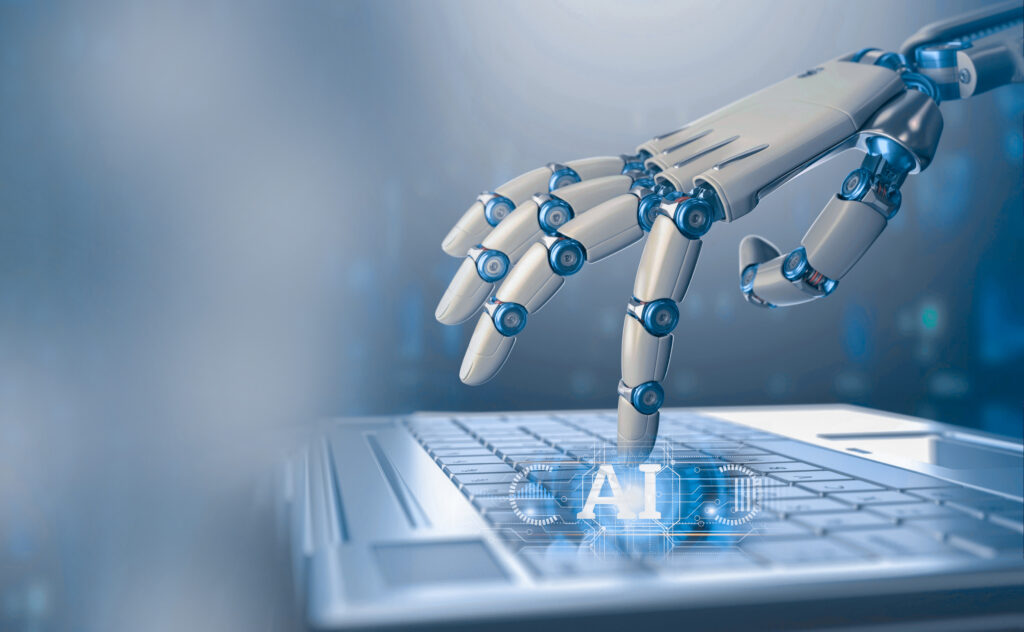The convergence of AI and DevOps is reshaping the way we approach software development and IT operations. By integrating AI into DevOps practices, organizations can achieve unprecedented levels of efficiency, automation, and innovation.
This post delves into the essential best practices for implementing AI in DevOps that can provide insights to help you harness the full potential of this powerful synergy.

9 Ways to Implement AI in DevOps
- Using AI for CI/CD
Continuous integration and delivery or deployment (CI/CD) is one of the most popular uses of AI in DevOps. To enable any modifications that pass the necessary tests to be immediately merged into the current codebase and pushed to production environments, artificial intelligence helps to automate the process of building, testing, and deploying code. This procedure can lower the possibility of mistakes and raise the general standard of creating the program.
- Code Suggestions
As coders type, artificial intelligence can make code suggestions. Your team may write code more effectively and deploy software more quickly with the aid of these AI-assisted code suggestions.
- Identifying Suitable Code Reviewers
Developers can locate the correct people to examine their code and merge requests with the assistance of AI and ML models. These automatically suggested reviewers can reduce context switching and help developers receive feedback more quickly and of greater quality.
- Automating Testing
For businesses to achieve continuous delivery, artificial intelligence can also be utilized to automate testing procedures. Developers can swiftly find and address any problems that crop up by using AI to automatically perform tests on new code, ensuring that the code is prepared for distribution as soon as feasible.
- Enhanced Monitoring and Alerting
Monitoring and alerting is a crucial component of DevOps. Artificial intelligence can be used to monitor apps and systems in real time, seeing possible problems before they become problems. It can also be used to automatically create alerts when certain criteria are satisfied, which enables operations teams to react to events faster and minimize downtime.
- Anomaly Detection Techniques
Anomalies in log data or data from other sources can be found using artificial intelligence. This can save downtime and enhance product quality by assisting DevOps teams in identifying any problems before they become serious.
- AI-Powered Root Cause Analysis
Root cause analysis on problems that arise during the development process can be carried out with AI. DevOps teams can utilize this to determine the root cause of the issue and take action to keep it from happening in the future.
- Recognizing and Understanding Vulnerabilities
Artificial intelligence can be used to list weaknesses and offer solutions. This can improve the speed and effectiveness with which developers and security analysts fix vulnerabilities and help them advance their knowledge to produce more secure code going forward.
- AI Integration for Continuous Improvement
AI can help DevOps businesses with their ongoing efforts to improve. Through the examination of data from numerous sources, including logs, performance measurements, and user input, artificial intelligence can detect patterns and trends that could point to areas in need of enhancement. Subsequently, this data might be utilized to direct the next development endeavors and enhance the software delivery procedure.
Best Practices for Using AI in DevOps
- Start Small & Iterate
It’s frequently advisable to start small and iterate when integrating AI into DevOps. As you get more knowledge about the benefits and drawbacks of artificial intelligence, start by pinpointing the precise domains in which it can be most useful.
- Include the Right Stakeholders
Involving stakeholders from all areas of the company is crucial. Developers, IT personnel, and business executives are among those who can offer insightful commentary and advice on the application of AI and its effects on the company.
- Ensure Data Quality & Security
Ensuring the security and integrity of the data being used is also very important. Secure data storage technologies and the implementation of data governance principles are required to accomplish this.
- Maintain Accountability & Transparency
Ensure that everyone involved is aware of the limitations and potential biases related to the usage of AI technologies, as well as how they are being used and which data sources they are relying on. To preserve faith in the AI-driven processes, clearly define the roles and responsibilities for each activity.
- Incorporate Human Supervision
Many DevOps jobs can be automated by AI, but to make sure the it’s making wise judgments, human oversight is still necessary. Assuring human consent for crucial decisions is still necessary to maintain optimal operations.
- Continuously Evaluate & Improve
Make any required improvements after routinely assessing the effectiveness of AI tools and algorithms to make sure they are delivering the desired results. As new best practices and lessons are discovered, incorporate them into AI-driven processes to continuously enhance them.
Prediction for The Future of AI and DevOps
Emerging new trends and technology will further influence how AI is used in DevOps in the future. These include developing increasingly complex AI-driven monitoring and alerting systems, integrating artificial intelligence with other cutting-edge technologies like edge computing and serverless architectures, and using machine learning models to anticipate and optimize resource allocation.
AI will also probably make it possible for DevOps to adopt new strategies, such as automatically enhancing code quality, optimizing software performance, and even writing code based on high-level requirements or business objectives.
Partner with Value Shore today to revolutionize your DevOps processes with AI solutions. Contact us to get started!
- AI in IoT: Benefits, Components, and Impact - April 10, 2025
- AI and Low-Code/No-Code: A New Era of Development and Innovation - February 25, 2025
- The Ultimate Guide to AI in IT Support: The Tools, Benefits & Challenges You Must Know - February 11, 2025
